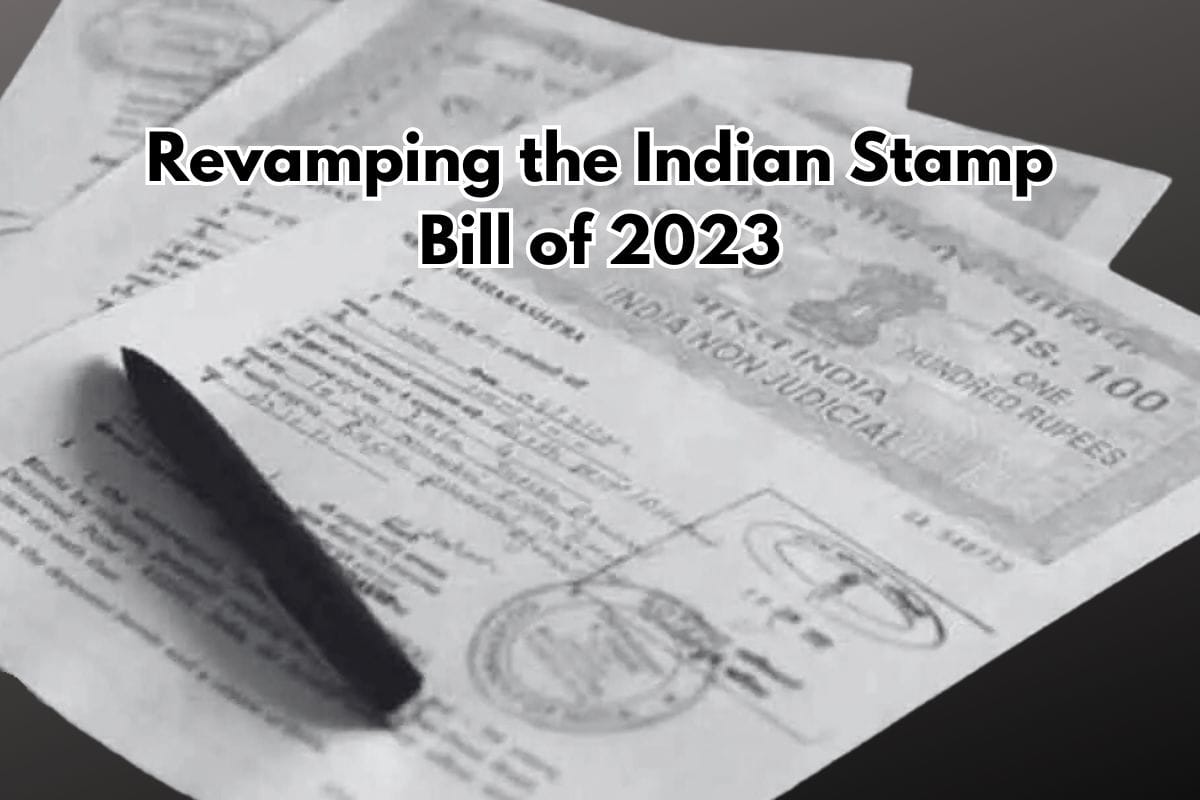
In an effort to refine the fiscal landscape, the Finance Ministry has extended an invitation for public commentary on the proposed amendments to the Indian Stamp Bill of 2023. This legislative initiative aspires to contemporize the existing stamp duty provisions, supplanting the antiquated 1899 Stamp Act.
Modernizing Outdated Policies
The archaic Indian Stamp Act of 1899, a fiscal law predating the Constitution, regulates taxes imposed through stamp duties on various transaction instruments. Despite being levied by the Central Government, stamp duties are collected by individual states as mandated by the Constitution.
Over the years, the 1899 Act has undergone periodic amendments to align with modern stamp duty systems. However, numerous original provisions have become obsolete, necessitating a comprehensive overhaul of the outdated legislation to suit contemporary conditions.
Implications of the Stamp Act
The Indian Stamp Act imposes levies in the form of stamps on legal agreements and documents recording financial transactions. These encompass agreements related to property sales, lease contracts, power of attorney documents, among others. The duty rates vary based on the nature of the document.
Revenue Generation for States
While stamp duty rates are defined by the Central Government, the revenue generated flows into the coffers of the respective State Governments. This serves as a significant source of tax collection, empowering states to finance welfare programs and public infrastructure projects.
Addressing Duty Evasion
The primary objective of the stamp law is to combat tax evasion by mandating the documentation of transactions for legal validity and enforceability. Documents lacking the requisite stamps are deemed inadmissible in courts, compelling compliance with stamping requirements.
Rationale for the New Stamp Law
The proposed Indian Stamp Bill of 2023 aims to realign the stamp duty regime with contemporary realities and objectives. This necessitates the complete repeal of the 1899 Stamp Act and the introduction of fresh legislation tailored to the current context.
Proposed Enhancements for Convenience
Envisaged legislative modifications in the new Indian Stamp Bill are poised to streamline payment processes and accessibility. The introduction of consolidated duty slabs across states is anticipated to bring about uniformity, while the adoption of digital property registration promises added convenience.
Combating Duty Avoidance Strategies
The Bill is poised to curtail tactics employed to evade duty, such as undervaluing property sales. It may mandate establishing links between sale prices and circle rates to prevent under-reporting. Stringent anti-evasion measures are envisioned to safeguard revenue.
Empowering the Digital Economy
The transition to an all-digital stamp duty system is expected to propel India’s digital economy forward. Electronic documentation and registration through a centralized portal or platform will enhance transparency and efficiency, marking a significant step towards modernization.



Leave a Reply